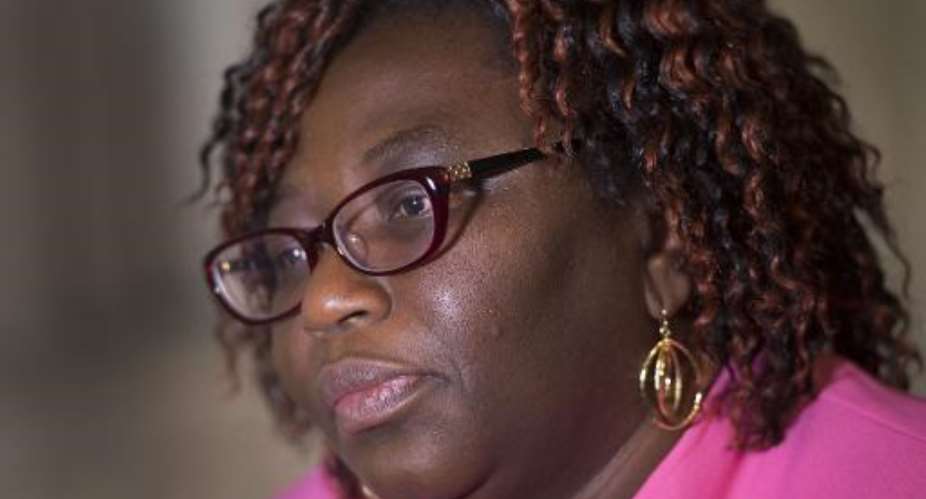Washington (AFP) - Togo, which is coordinating the fight against West Africa's deadly Ebola outbreak, says the international community "cannot relax efforts" to combat the disease, Social Action Minister Dede Ahoefa Ekoue told AFP.
Speaking ahead of the G20 summit in Australia, Ekoue said "global solidarity" is essential to beat the epidemic, which has already killed more than 5,100 people, mostly in hardest-hit Liberia, Sierra Leone and Guinea.
In this interview, Ekoue underlines the critical need for a comprehensive and rapid response to the deadliest-ever Ebola outbreak.
Liberia lifted its state of emergency this week, announcing huge gains in the fight against Ebola. Is the epidemic slowing in West Africa?
First of all, we have to be pleased with the reduction in cases in these countries. It's very important because our efforts are now producing results. But we definitely cannot relax efforts. We need to reassess the measures we've taken, and we have to continue -- but without panic -- we must be vigilant at all times.
Is foreign aid from wealthy nations, including the United States and in Europe, enough in the fight against Ebola? Are you afraid of a weakening in the international effort?
We welcome the leadership of the United States and other countries that allowed us to tackle Ebola not only as a health issue, but also as a matter of global safety.
When it comes to international solidarity, it's not simply a matter of charity. Ebola could have an impact on national economies, on regional economies and at a global level too. The United Nations Security Council said Ebola posed an international threat... It is an international problem, and we need an international solution.
For President (of Togo, Faure Gnassingbe), this call for international solidarity is very important and it's a message that will be delivered at the G20.
Some say the International Monetary Fund-imposed austerity measures in Africa in the 1980s and 1990s undermined the health systems struggling today to respond to the Ebola outbreak. Do you agree?
On the International Monetary Fund, at such times, it is important to not simply criticize... It's true that our systems were undermined by problematic investments in the social sector, and the health sector in particular.
But today, countries know that we urgently need to reinforce national health systems... We need to make key investments. Now is not the time to get lost in criticisms. It's time to act.





 Saglemi Housing Project will not be left to rot – Kojo Oppong Nkrumah
Saglemi Housing Project will not be left to rot – Kojo Oppong Nkrumah
 Transport fares hike: GPRTU issue two-day ultimatum
Transport fares hike: GPRTU issue two-day ultimatum
 ARC endorses Alan as presidential candidate – Buaben Asamoa
ARC endorses Alan as presidential candidate – Buaben Asamoa
 Akufo-Addo appoints Kwasi Agyei as new Controller and Accountant-General
Akufo-Addo appoints Kwasi Agyei as new Controller and Accountant-General
 PNC dismiss reports of mass resignations
PNC dismiss reports of mass resignations
 PAC advocates for revenue collectors to be engaged on commission basis, not full...
PAC advocates for revenue collectors to be engaged on commission basis, not full...
 Genser Energy commissions 110km of natural gas pipeline at Anwomaso
Genser Energy commissions 110km of natural gas pipeline at Anwomaso
 Naa Torshie calls for tolerance, peace ahead of 2024 election
Naa Torshie calls for tolerance, peace ahead of 2024 election
 Asantehene commends Matthew Opoku Prempeh for conceiving GENSER Kumasi Pipeline ...
Asantehene commends Matthew Opoku Prempeh for conceiving GENSER Kumasi Pipeline ...
 Let’s do away with ‘slash and burn politics’ in Ghana — Dr Adutwum
Let’s do away with ‘slash and burn politics’ in Ghana — Dr Adutwum
